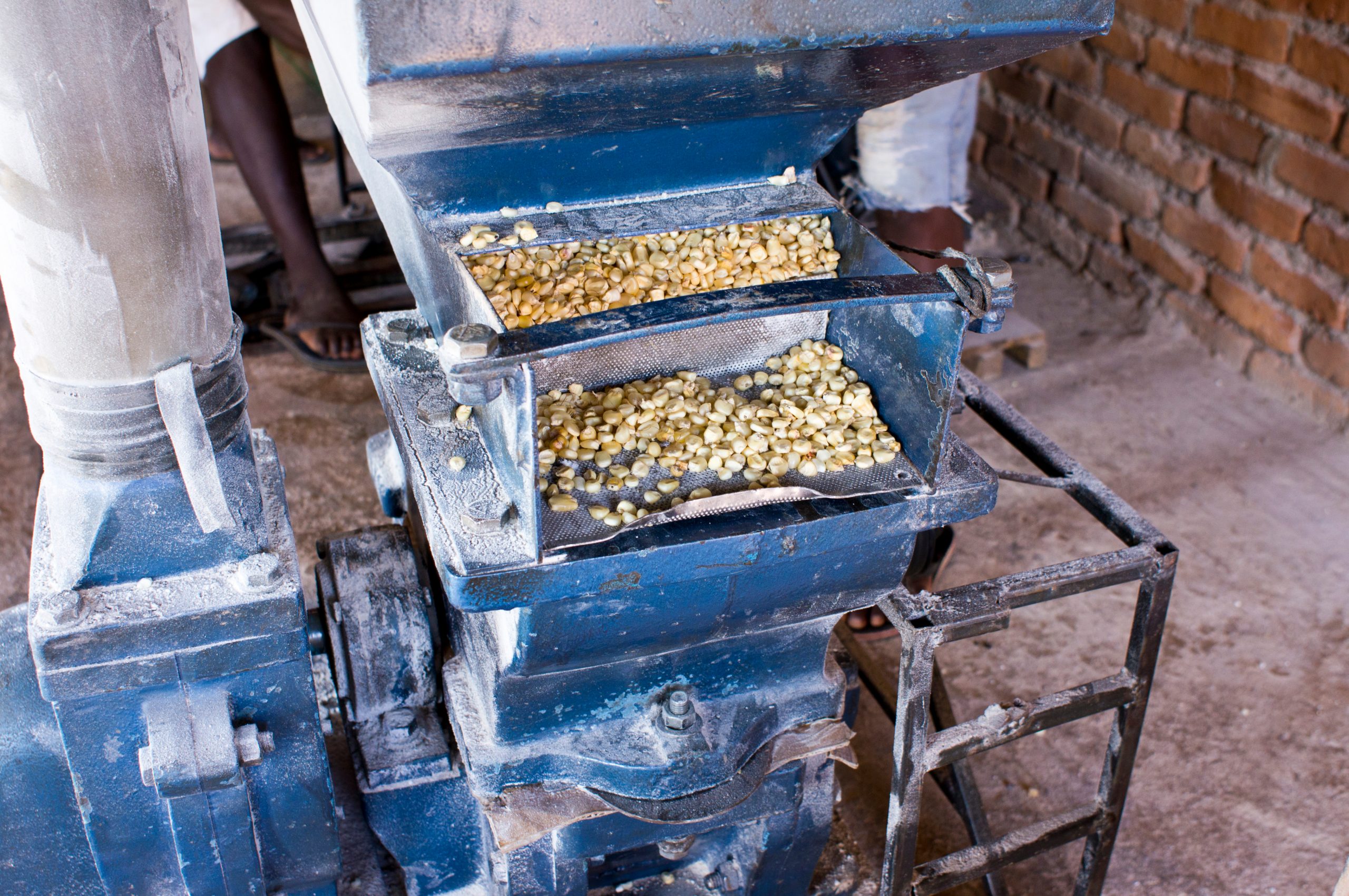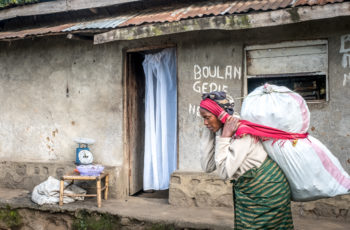Overview
Researchers
Jonathan Robinson
Associate Professor of Economics, University of California, Santa Cruz
Alan Spearot
Associate Professor, Department of Economics, University of California Santa Cruz
Shilpa Aggarwal
Assistant Professor in the Economics and Public Policy at the Indian School of Business (ISB)
Susan Godlonton
Assistant Professor of Economics at Williams College
Guanghong Xu
Ph.D. student at the University of California, Santa Cruz
- Country
- Rwanda
- Timeline
- 01/01/2020 - 09/30/2023
- Previously Funded Stages
- Pilot
- Constraints
- Input and Output Markets, Risk
- Technology Category
- Contracts, Storage
- Sample
- 360 smallholder farmer cooperatives

Photo: Shutterstock.com
One way that farmers can improve their income and livelihoods is to transition from subsistence farming to market-driven, commercial agriculture in which output is sold into value chains. However, smallholder farmers typically do not sell their output to buyers in value chains, and one of the reasons is because their output often does not meet the required quality standards. Researchers are evaluating the effects of providing farmers with access to maize processing services that could improve maize quality on their input decisions.
Policy issue
One way that farmers can improve their income and livelihoods is to transition from subsistence farming to market-driven, commercial agriculture in which output is sold into value chains. Transitioning to market-driven value chains may improve agricultural investment and productivity for several reasons. First, buyers in value chains such as food processors tend to pay higher prices than those offered by local markets because they typically require higher quality standards. Second, buyers purchase via contracts which guarantees a price for the output before harvest, thereby reducing the risk of price fluctuations for farmers, who can then make investment decisions with more certainty about the returns to these investments. In response to both higher and guaranteed prices, farmers may decide to expand their land holdings or invest more in yield-increasing inputs like chemical fertilizer or improved seeds during the planting and harvesting season, which could improve productivity and raise income.
However, an important reason for the absence of deeper linkages with market-driven value chains could be that smallholder farmers’ output often does not meet the required quality standards. As a result, many premium food processors tend to reject a large share of grains that farmers bring to them, effectively shutting farmers out of value chains and discouraging them from investing in quality inputs. Can improving the quality of outputs for farmers increase the expected price for their products and encourage investment in productive inputs?
Context of the evaluation
In Rwanda, as part of the government’s Crop Intensification Program, farmers are organized into cooperatives. The country has 2,400 agricultural cooperatives with nearly 300,000 members (Rwanda Cooperative Agency), representing nearly 20 percent of the country’s agricultural households. Many of these cooperatives farm collectively on government-owned land. These cooperatives can take advantage of economies of scale, both in aggregating their output and potentially organizing input purchases. However, most cooperatives do not have a contract in place with buyers and are not connected to output value chains. In August and September 2019, researchers found that among the farmers’ cooperatives that listed maize as their primary crop, only 32 percent had a buyers’ contract in the previous agricultural season.
One possible reason for the absence of more established contracts with food processors is that smallholders’ output often does not meet the quality standards required by food processors. In Rwanda for example, several factors, including the timing of the rainy season prevent farmers from properly drying maize, which often leads to contamination.
Africa Improved Foods (AIF)—a processor in Rwanda—aims to improve the current maize processing system by buying maize on the cob from farmers, transporting it to processing centers, and managing the post-harvest processing in-house. The custom-built industrial shelling and drying machines replace the traditional six to ten-week post-harvest drying period with a much shorter process. AIF offers contracts to buy farmers’ entire lots of maize and pay them almost immediately after harvest, which eliminates the need for farmers to dry their maize and reduces the risk of post-harvest losses from spoiled maize.
Details of the intervention
Researchers are conducting a randomized evaluation to understand the effects of access to AIF on farmers’ investment in productivity-enhancing inputs such as seeds, fertilizer, and land holdings. Working with AIF, researchers will assign 360 cooperatives who will be planting maize in the upcoming season to two groups:
- Improved maize processing: Representatives from AIF will visit cooperatives in this group, explain the program and encourage cooperatives to secure a buyer contract with them before the start of the agricultural growing season.
- Comparison: Representatives from AIF will not visit cooperatives in this group.
After the 2020 and 2021 harvests, researchers will conduct surveys and collect administrative data on input usage of farmers from an administrative dataset provided by the Rwandan Agricultural Board which documents every fertilizer purchase in the country. Researchers will also collect data from AIF to understand the timing of, quantity, and price received by farmers for sales made to AIF. They will also conduct in-person surveys with cooperative representative and farmers to collect data on land holdings, hired labor, crop yields, crop sales, crop choice, and agricultural income.
Results and policy lessons
Preliminary results indicate significant participation in FtMA in cooperatives that received visits during the 2022 season. The number of contracts signed between cooperatives and the food processor increased substantially, as did selling on the cob. However, there does not appear to be any significant effect on sales and prices received by farmers. Because FtMA was implemented in the mid-season of 2022, there was no time for input use to change. As such, there was no effect on input usage or harvest output, although this will likely change in subsequent seasons as cooperatives stay enrolled. Researchers are in the process of analyzing data for the 2023 season and will collect data for the 2024 and 2025 seasons to examine the longer-term effects of FtMA participation. Read the preliminary results report here.
